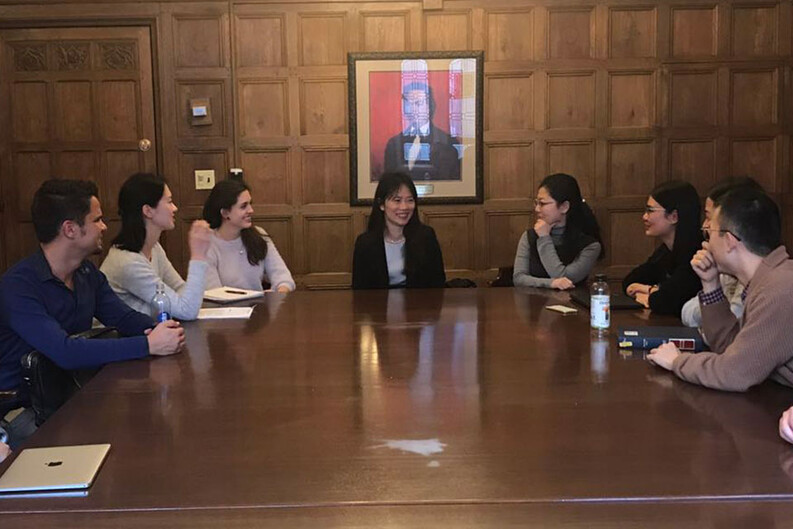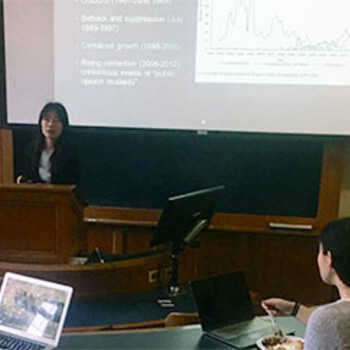Prof. Ya-Wen Lei Discusses China's "Contentious Public Sphere"

“Law and media are double-edged swords for the Chinese state,” Harvard University sociology professor Ya-Wen Lei ’06 LLM, ’11 JSD said at a presentation at Yale Law School last Wednesday on her new book, The Contentious Public Sphere: Law, Media, and Authoritarian Rule in China. In the 1990s, the state’s modernization efforts needed lawyers and journalists to facilitate the development of China’s increasingly complex economy. But once empowered by their new roles, lawyers and journalists began vocally exposing state abuses and advocating for the protection of citizens’ rights. The result was the emergence of what Professor Lei terms a “contentious public sphere.” With nationwide discussions in print and online media of police brutality, food safety scandals, land seizures, and other injustices, the sphere became “unruly” and “capable of generating issues and agendas not set by the Chinese state.”
The contentious public sphere’s rise was an “unintended consequence” of the Chinese state’s pursuit of development, according to Professor Lei. Lawyers and journalists were once government functionaries directly controlled (and paid) by the state, but during market liberalization they became more autonomous, professionalized, and capable—and “the creation of capable agents can be politically risky,” Professor Lei notes. “The government has its image of modernity, but these capable agents have their own images as well. And, as they become more capable, it becomes more difficult to control their thinking and actions.” Herein lies what Professor Lei calls the “dilemma of authoritarian modernization.” The state desires to generate power and wealth from socioeconomic development by enlisting capable agents, but it cannot do so without risking its political control.

When it was discovered that tainted milk powder was sickening thousands of infants throughout China, state propaganda emphasized the responsible private supplier’s failure to comply with food safety laws. However, a growing chorus of netizens, journalists, and lawyers emphasized more fundamental problems with the legal system. These groups stressed that without citizens’ rights to speak and demand government transparency and accountability, such incidents would continue to occur in the future. “The government wants citizens to think of the law as solving a private individual matter, but lawyers and reporters uncover the public—and thus political—dimension of rights,” Professor Lei said.
In recent years, especially since the ascendancy of General Party Secretary Xi Jinping, the Communist Party has endeavored to reassert control over the public sphere, and, in large part has succeeded. By deploying sophisticated technologies and ramping up punishments and political pressure, the Chinese state is able to prevent or quickly crackdown on critical speech and citizen mobilization. “After the tightening, there is still space to talk, but much less space to organize. The number of public opinion incidents have gone down, and it is becoming much more difficult for citizens to set agendas,” Professor Lei said.
Coincidentally, shortly after Professor Lei’s talk, millions of Chinese netizens rallied online to protest an announcement by Weibo (China’s Twitter-like social media app) that it would be deleting gay-related content in a “clean-up campaign.” Facing the massive backlash, Weibo rescinded the announcement. Despite being increasingly constrained, the contentious public sphere lives on.


